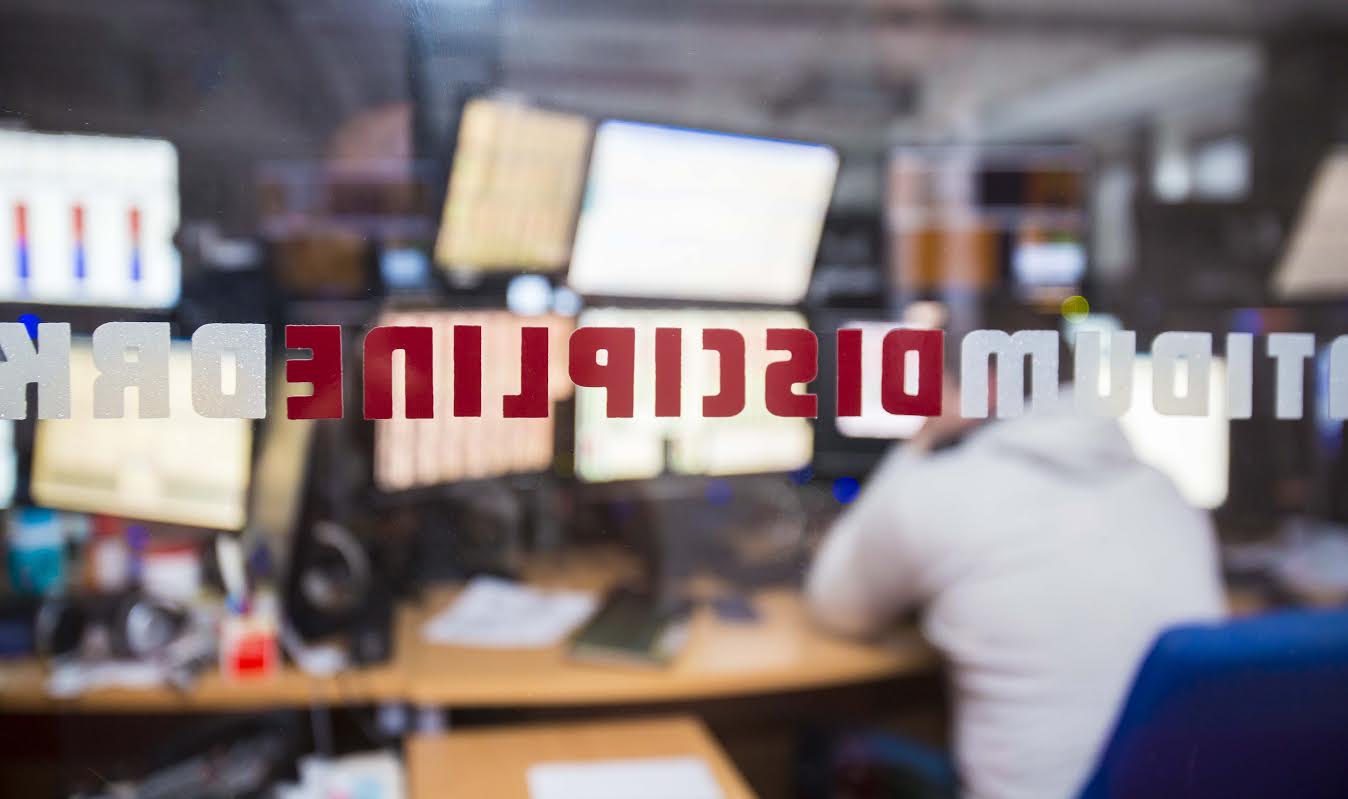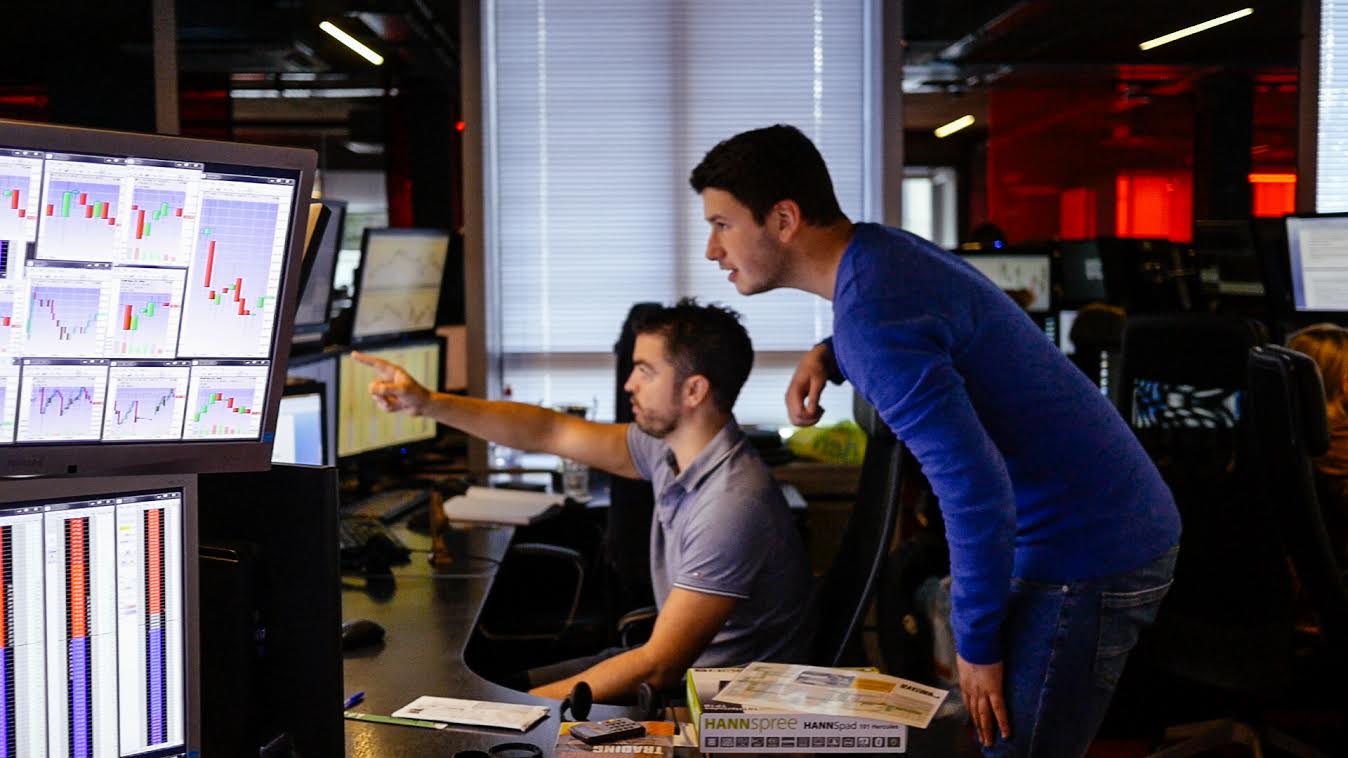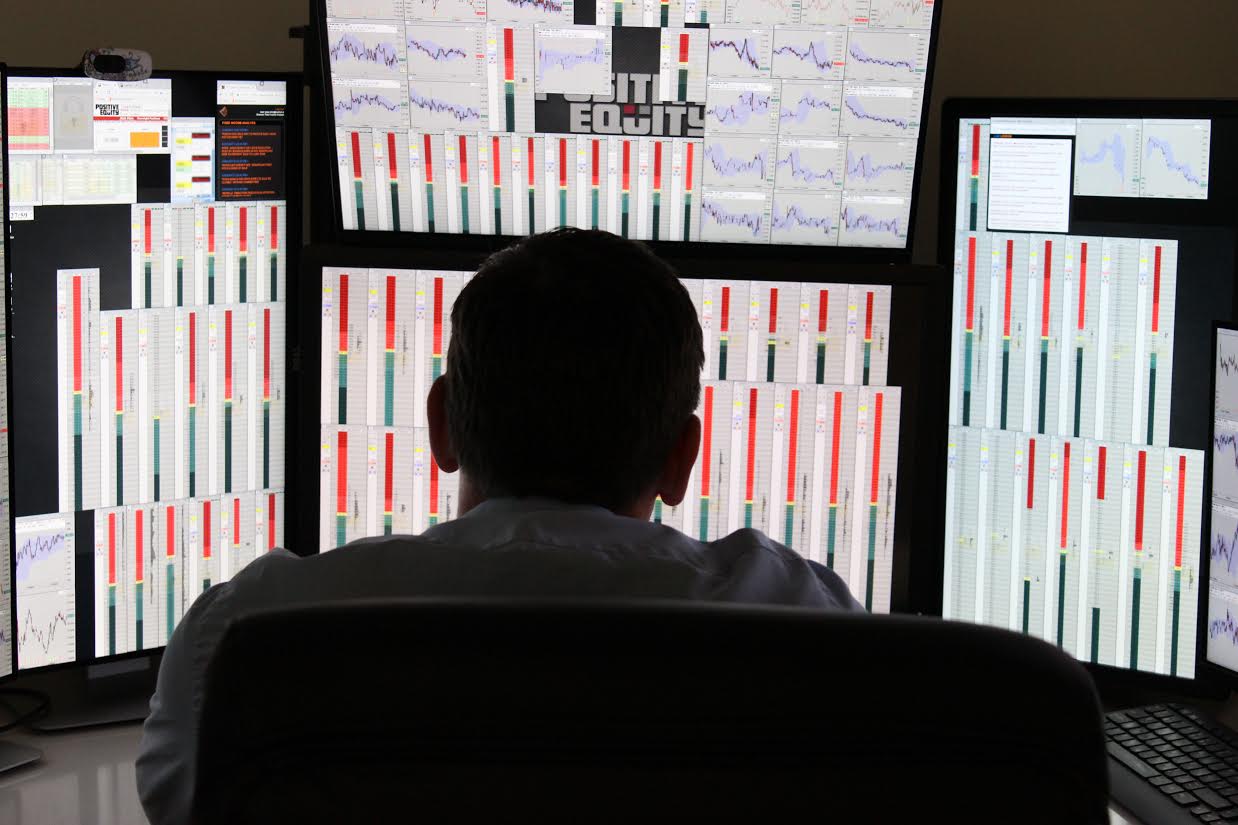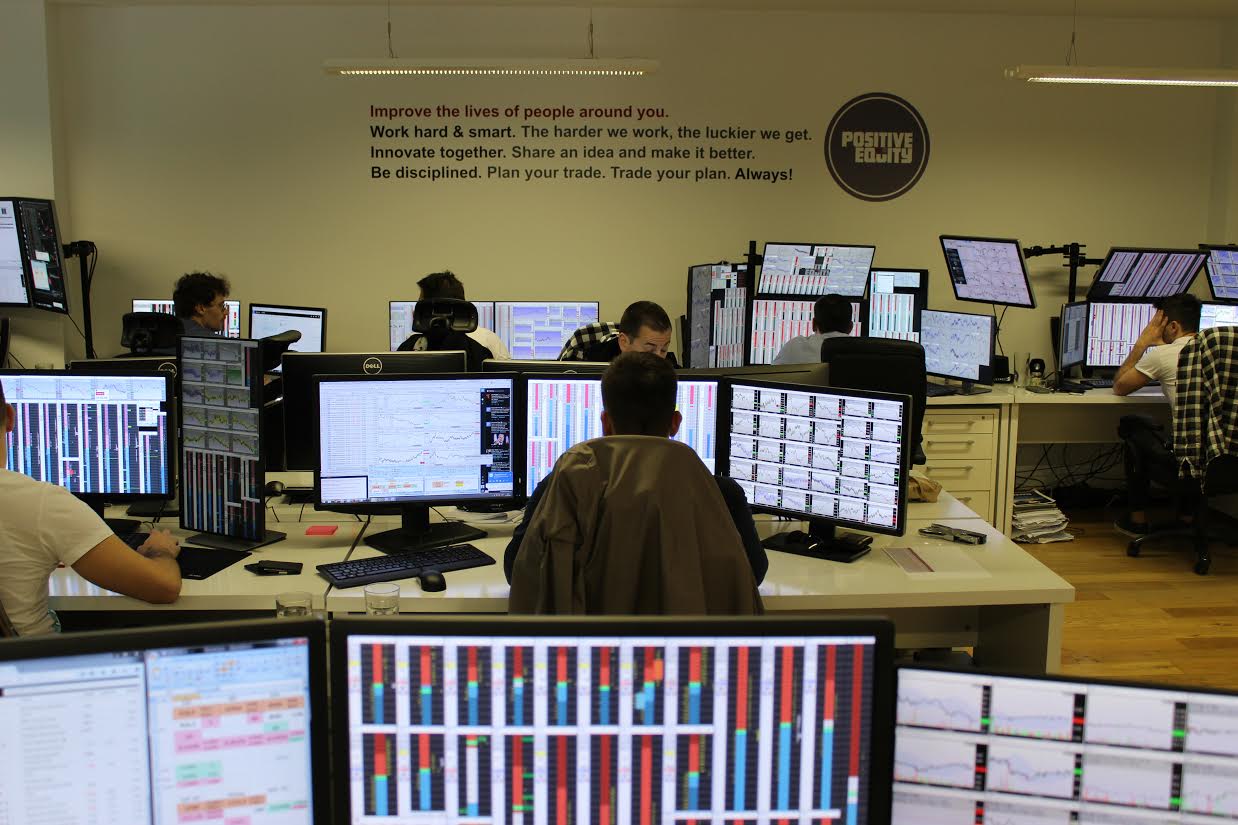Riding the Stockmarket Corona Rollercoaster: A Trader's View from Split
April 9, 2020 - Nowhere has the corona rollercoaster been more volatile than on the stock markets. So how is life as a trader in the sunshine in the Dalmatian capital of Split, and who does all this compare to 2008 and 9/11?
The stock market is a brave place to be dabbling in right now with the global corona rollercoaster, but for some it is a way of life and full-time job. I am very grateful to Jason Berry of Positive Equity for finding the time to tell us how all this madness looks from the trading floor in self-isolation in Split.
Some people have nothing to do at the moment as they sit out this isolation, others have never worked harder. Which is it for you? Tell us about your day.
We haven’t been this busy since 2008. Our business is inversely correlated with the general market cycle. This means that when markets are up and the bulls are in charge, our daily grind is fairly moderate. But when fear takes over and the markets are tanking, we become exceptionally busy.
Our normal day takes part between 8 am and 10 pm. Each trader works some version of those hours. European markets open at 8am, most people at their desks 7:30, reading the news, catching up with what happened in Asia. The US markets and most major European markets are open until 10 pm. I work noon till 10 pm. They are long hours be we have lots of breaks in there, first a kava, lunch, gym, second kava, third kava, etc. it's hard work but its quite flexible in many ways. Well, that all changed when Covid-19 started to hit the markets.
I started staying up until midnight on Sundays to see the open of Asian markets and on 4 of the last Sundays stayed up working until 3-4 am, sleep, then back up for European open, trade for 3-4 more hours, nap around 10 am to noon, then back at it until 10 pm. It was insane. The markets just didn’t sit still. They have been the busiest I’ve seen them since 2008, and not in a good way. They say the markets go up the stairs, but down the elevator shaft.
We’re now only just starting to emerge from one of the busiest months of my career. We’re all exhausted.
On a more human level, our day has changed. We used to go out to lunch or eat at a café, now we order Wolt and get coffee in a plastic cup from a machine for 3 kuna. I’ve discovered a lot of tasty restaurants: Skatula for pulled pork sambos, Maka for sushi poke bowls, Cookie Lab for croissants and OJ. We see nobody. Most of us are isolated from our families. We have a number of international traders and they can’t see friends and live alone, that’s tough. I’m putting together an Easter basket for them.
We’re lucky in that we are only wrestling with the medical and psychological aspects of this crisis whereas other folks have the financial bomb lobbed in there as well. These are very strange times we live in.
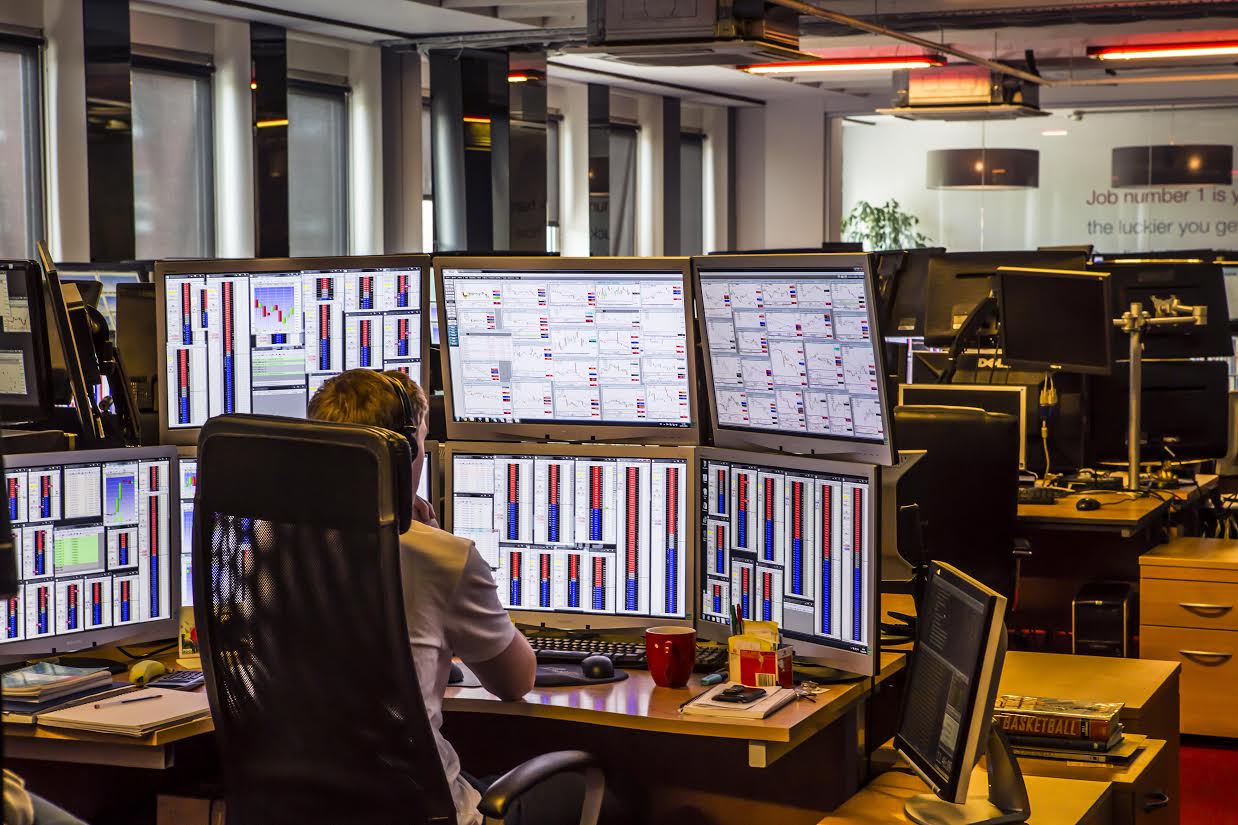
From your recent TCN interview for our expat self-isolation series, you said you picked up the corona threat very early. Give us the timeline from a trading point of view - when did things really start to affect the market.
Well, the virus arrived first in China. The China50 or top 50 stocks in China started getting smashed on January 21st. We watched for a week of carnage but after they put the quarantine into effect things stabilized and recovered a bit into February. We took note but it was still far away and not personal yet.
Then February 20 and 21st the virus spread to Europe, and Italy in particular, and we started seeing significant down moves in European indices and the US. This is when we started getting ideas that things were not OK, but still it somewhat controlled down moves. We made jokes in the office, told our friends not to travel to Asia but we were not self-isolating or anything yet. The following week changed all of that.
In the last few days of Feb and the first few days of March, panic began to hit the markets as people began to realize the economic and societal impact, and that unlike earlier outbreaks, it was deadly and wouldn’t just stay in Asia. 10 years of recovery was undone in a couple of weeks. So for us on a personal level, the indicators were when it started to hit Italy and how the markets reacted to Italy. We started to isolate the end of the first week of March. We sent home all non-trading staff, ended our interns' 2-month internships early and reduced staff in the office. We began setting up people to work from home. One of our trainee traders returned to Opatija out of fear that he wouldn’t be able to visit his family and chose to work from there. Our IT staff member set everybody up in a frenzied week so we could operate from home. We discussed with all staff members about the need to self-isolate and began that process. But we only began that probably 10 days ahead of the Health Ministry’s official notice. Some of us were actually scheduled to go skiing in northern Italy. Thanks to my wife I didn’t go.
The rest of March was manic. We worked crazy hours. Markets were busy all day and all night as traders around the world tried to digest the information coming from WHO, Italy, Europe, and the US.
So far so good. No infections in the office or our families, thank goodness.
How does this compare to 2008?
2008 was more drawn out. But we’re early days still, so time will tell. The 2008 market crash started in March with the small investment bank Bears Stearns going bust because they had so much mortgage garbage on their books. Markets dove initially, but then recovered for much of the spring and into the summer, but then it all started up again in late summer and lasted all the way until Christmas. As traders, we were exhausted. It was months of full-on days just strapped to the desk, ordering lunch and not moving off the chair. The main carnage in the markets lasted around 4 months. At the start of the year, markets continued down but at a moderate controlled pace and then turned around March. It took the next 10 years to recover.
This time the majority of the crash has happened in a very short period of time, less than a month. I think the markets digest information much more quickly nowadays. Investors and traders react much faster, whether that is because there are more computer programs active in the markets or just because of the general digitalization of the markets away from open outcry (traders on trading floors on exchanges) which doesn’t really exist anymore. Whatever the reason, markets react a lot faster to news than ever before.
All this volatility must be good for someone. How is business?
Busy doesn’t mean good. But in general, our business has a reverse correlation to normal business cycles. It’s an odd business in that regard and an odd feeling in the office. We’re doing well but the news and personal effects on our lives aren’t. You feel melancholy. It was a similar feeling during the recession. The worst of these market shocks was the September 11 tragedy, and Covid-19 is bringing that feeling back. It’s a strange set of feelings, very hard to describe. As businesses go, we’re in a good space, no exposure to tourism, we can work remotely, and we’re in a good place of our business cycle.
With such unprecedented volatility and uncertainty, do all your instincts and training go out the window at a time like this? How has your approach to trading changed?
When markets go bananas this is when we see if all the training works. This is when traders are really tested. This is when if there are any skeletons in your closet they come out. The number one fear of our firm is that a single person will blow us up during extreme market moves. We’re happy to report that all our traders performed admirably, especially our Croatian traders. Svaka cast, momci.
Talk to us about oil prices and what might happen.
I’m not an investor so the long term picture for me is as fuzzy for me as it is for most people. Russia and Saudi are at loggerheads about how to address the loss of demand. No planes in the air, no trucks on the roads, no ships on the sea. Everything has stopped. All this while there wasn’t a real reduction in production. Then Russia said we’re not going to reduce and in response Saudi flipped them the bird and said the same thing, and so oil tanked. Now they are talking about an Opec+Russia+USA meeting. We’ll see how that turns out. Historically we’re at lows, but one never knows. It’s hard to believe you can get a barrel of oil for less than a barrel of mineral water! Opec plus Russia and the US will most likely sort something out but if they don’t, hello 10 dollars a barrel.
Your prediction of the value of the Dow this time next week, next month and next year.
I’m a trader, not an investor, but I am instructing my personal investment manager to rearrange my portfolio to a much riskier heavier on stocks portfolio. But I highly recommend anybody thinking of getting involved in the markets or investing, speak to a pro first. If not, getting involved in the markets is like gambling.
There are obviously some people buying at the moment. Which sectors are you seeing the most movement in?
The main rules of investing are buy strength. So figure out which industries weren’t smashed as much and buy those. Obvious ones are mask producers, delivery companies, and groceries, but that play is largely over. Long term, think about what industries and companies always do well. But don’t go bottom-feeding, a lot of companies will never recover from this, they were too laden with debt to start with and have no financial flexibility.
Cruise ship shares have taken a dive. Do you think they are coming back?
Again I’m not an investor, my personal opinion is that some of the best will recover, the worst will not. It was a hard business to start with. I think Zoran Pejovic hit the nail on the head with his piece on how tourism will change. People will want a lot more privacy and stay away from masses of people. Cruise ships aren’t that.
And the question we all want to know - when will all this be over?
Human nature is to overplay good news and underplay bad news. We have months of lockdown in front of us. China is only just now emerging. They were in lockdown for basically a little over 3 months. We started ours a month ago in Croatia, the UK and US just began, so there is a long road ahead for sure. China went full lockdown immediately. Croatia is 80% lockdown, unlike Italy and Spain. The UK messed around and will unfortunately pay a heavy price. The US is still messing around and will undoubtedly lead the world in a way nobody wants them to. Tragic. But the real answer is nobody really knows for sure. So hunker down, get a healthy routine, and prepare for the long lockdown. If it ends sooner, great, if not, we’ll all be prepared.
The good news is that the markets have been going up from their lows for the last two weeks. The media loves bad news stories, or rather, humans love reading bad news, so the media obliges. The market always reacts ahead of where the current situation is both on the downside and the upside. Whether that means the markets are satisfied with political, medical, and economic measures that have been taken is hard to say. For now, the markets have stabilized. If there is another move down, it will be from a resurgence in Asia, calamitous health results from the US lockdown, and a longer time frame for getting economic activity going again. The big catalyst will be the cure. Once that happens normalcy will begin to return. But until that happens the virus is here to stay, and that will have effects everywhere and specifically for us here in Croatia.
In Croatia, that recovery will be a lot longer. I don’t follow Crobex, but the short and long-term effects to an economy where corruption hasn’t been fully weeded out and where tourism is a cornerstone will be, I’m afraid to say, more severe. Until there is a cure, most people are not going to want to travel anywhere. Hunker down and do what you need to do to get to the other side.
You can contact Jason Berry via his Positive Equity website.
For the latest on corona in Croatia, follow the dedicated TCN section.
Foreigners Self-Isolating in Croatia: Do You Feel Safer? Jason from Ireland/USA
March 31, 2020 - Do foreigners in Croatia feel more or less safe sitting out COVID-19 here than in their home country, and what are their experiences? A new series on TCN, starting with entrepreneur Jason Berry from Ireland/USA, currently holed up in Split.
Oxford University recently published some research on government responses to coronavirus which showed that Croatia currently has the strictest measures in the world. While inconvenient, this is a good thing in terms of reducing the spread of the virus, and I am certainly not alone in my admiration of the official Croatian handling of this crisis in recent weeks, both in terms of action and communication.
But what do other expats here think? And how does it compare with the response in their home country? Would they rather sit this one out here or there? In the first of a new series on TCN, we will be featuring expats from all over the world to see what their views are on life in corona Croatia rather than back home. Having started with an excellent contribution from Romanian Mirela Rus in Split yesterday, we move across the Dalmatian capital to see how Jason Berry, an entrepreneur from Ireland/USA, is faring.
If you would like to contribute to this series, full details are below. Now, over to the one and only Jason Berry.
Firstly, how are you? Are you alone/with someone? Tell us a little about your situation and sanity levels.
Thanks for asking. We're all healthy. All our friends are healthy. All our family are healthy so all good in that department. My wife and I decided (she decided) to divide and conquer. She has taken the two kids down to baba and dide's in the smallest most famous town on the Makarska Riviera, Drasnice. The kids have a huge house and yard to play in and lots of space empty of people. There are only 200 people in the village so its very well isolated and sparsely populated, all good for isolation. So by dividing, I am living the bachelor life of a single man in isolation: movies, video games, reading, and the kids have been busy conquering my poor wife, running her off her feet.
I am up in Split working from home and drive down the Magistrala coast road through three checkpoints to visit them each weekend.
I am a director of a securities trading firm with offices in Dublin and Croatia. I am mostly trading the financial markets, and not doing much directoring as most people are working from home.
Our Dublin office is completely shut down and all people are working remotely. Our Croatia office has a skeleton crew of only 4 in the office and everybody else is remote.
We have a front row seat to the craziness of the markets caused by Covid-19 over the past few weeks, which has given us a greater sense of urgency as to the seriousness of the virus' impact on the global economies. We were watching first hand as the markets collapsed, erasing the gains of the past decade in a matter of days. Terrifying volatility. Our business is inversely correlated with the normal business cycle. We are least busy when the markets are going up and incredibly busy when markets are going down. So in terms of work, we've been run off our feet. The US markets open around midnight on Sunday night, and on the last three Sundays I've worked more or less straight through from midnight on Sunday til midnight on Monday with a few naps. The whole firm is more or less doing the same thing. Strange times.
When did you realise that corona was going to be a big issue?
We realized pretty early on as it started to leave China. Like I mentioned above, the markets were reacting to the seriousness of the situation even if most politicians and the public were not. So we made preparations for the business and for the family the first week of March and went into isolation shortly thereafter. We were fortunate to be able to see the market indicators about how serious this was going to be. But the last week of February we had booked to go skiing in Italy. All the guys were being all macho and saying, no big deal, all the women were saying cancel cancel. In the end, we cancelled as it became clear how serious the disease was spreading.
What is your impression of the way Croatia is dealing with the crisis? How safe do you feel?
I feel very safe compared to how they are handling it in the US. I feel China handled it better and Germany is testing tons. I wish Croatia was testing more. But there are relatively few tourists here in the winter so we are fortunate. There are a lot of workers that go to Italy and Austria, and a few who travel for skiing and such, but otherwise I feel pretty well isolated.
Croatia's daily communication from the Health Minister has been great. The Viber messages are great too.
Split people following the government's orders in the beginning were disgraceful. People were out playing bocci ball, hanging in cafes in big groups, drinking on the wall in the local neighborhood, pretty much ignoring the whole social distancing thing. But then after the earthquake and ban on travel, everybody got the message. The police should have been out enforcing the self-distancing stuff earlier.
The numbers are low in Croatia. Now I don't know if that is because Croatian health service is kicking ass and is well prepared or that we got lucky. People tell me that the health service is well organized. It helps a lot having a centralized health system. It's probably a little of both.
Now compare that to your home country and how they are handling it. What is Croatia doing better/worse?
Compared to Ireland, Croatia is about the same, a little less strict, with similar results. The Irish will struggle because they travel so much and people travel to Ireland at all times of the year, but Jan and Feb is the slowest time.
Compared to the US, Croatia is heaven. The US is in for a serious dose. They have handled it almost as badly as you could, denial, denial, oh shit. Trump said it at the start of his presidency, US will be number 1. It's a funny joke but things are going to get really bad over there. The US doesn't have centralized medical systems or universal health insurance, and they have a leader who denied it was coming. All those things will add up to some serious problems in the next month, unfortunately.
What about official communications from the authorities, compared to your home country?
Health boss Vili seems to be no BS, all the facts, straight-shooting, and spot on. He even has an accent I can understand! Bonus. His daily briefings and Viber have been great. The police at checkpoints, however, have a mix of masks and no masks. People on the street seem to be wearing masks against all advisories so not all messages are getting through on how to handle precautions.
What's the one thing you wish you had taken with you into self-isolation.
Food. I laughed at all the hoarders going out and panic buying stuff. Now I can't find a store open past 5pm and Konzum's delivery service is all jammed up. But that just means I don't cook and order a ton of Wolt: sushi, poke bowls from Maka, Zora Bila, Mexican from To je Tako, and desserts from The Cookie Lab. I'm going to be enormous when the isolation ends.
One thing you have learned about yourself, and one thing you have learned about others during this crisis.
It is a crisis but it is not. If you do what you are supposed to, it is just like a series of rainy days. The risk is relatively low. I work. I come home. I watch too much TV, play too many video games, and don't read enough. So I don't panic or maybe I just have too much faith in the things I expect will continue working. I don't panic so I've got fairly low stress so far. I don't panic so I have no food in the house. But to be honest, so far so good. We're all healthy. I can do my job at home very easily. So we are quite fortunate and so far for me and my family its just been an inconveniece. I know that is not the scenario for everybody else.
The only big regret I have right now and probably the thing that has been worrying me the most is that I have two teenagers from Dom Maestral that I hang out with and I haven't been able to see them for like a month. We touch base on WhatsApp and I check in, but that is about all we can do until it ends. They are under lockdown and so am I. That is a real bummer.
Thanks Jason, stay safe and see you on the other side. You can learn more about Jason and his life in Split from this earlier feature story on foreign entrepreneurs in Croatia.
You can find more foreigner corona stories in our dedicated section here.
TCN is starting a new feature series on foreign experiences of sitting out covid-19 here in croatia compared to their home country. If you would like to contribute, the questions are below. Please also include a para about yourself and where you are from, and a link to your website if you would like. Please also send 3-4 photos minimum to This email address is being protected from spambots. You need JavaScript enabled to view it. Subject Corona Foreigner
If you would be interested to record a video version for our partners www.rplus.video please let us know in the email. Thanks and stay safe.
Foreigners Self-Isolating in Croatia: Do You Feel Safer Than in Your Home Country?
Firstly, how are you? Are you alone/with someone? Tell us a little about your situation and sanity levels.
What do you think about the economic measures the government is taking, are they helping your business? (PLEASE IGNORE IF THIS DOES NOT AFFECT YOU)
When did you realise that corona was going to be a big issue?
What is your impression of the way Croatia is dealing with the crisis? How safe do you feel?
Now compare that to your home country and how they are handling it. What is Croatia doing better/worse?
What about official communications from the authorities, compared to your home country?
What's the one thing you wish you had taken with you into self-isolation.
One thing you have learned about yourself, and one thing you have learned about others during this crisis.
TCN has recently become a partner in Robert Tomic Zuber's new R+ video channel, initially telling stories about corona experiences. You can see the first TCN contribution from this morning, my video from Jelsa talking about the realities of running a news portal in the corona era below. If you would like to also submit a video interview, please find Robert's guidelines below
VIDEO RECORDING GUIDE
The video footage should be recorded so that the cell phone is turned horizontally (landscape mode).
There are several rules for television and video news:- length is not a virtue- a picture speaks more than a thousand words
In short, this would mean that your story should not last more than 90 seconds and that everything you say in the report should be shown by video (for example, if you talk about empty streets, we should see those empty streets, etc.).
How to do it with your cell phone?First, use a selfie camera to record yourself telling your story for about a minute and a half. Ideally, it would be taken in the exterior, except in situations where you are reporting on things in the interior (quarantine, hospital, self-isolation, etc.). Also, when shooting, move freely, make sure everything is not static.
After you have recorded your report, you should capture footage that will tell your story with a picture, such as an earlier example with empty streets.
One of the basic rules of TV journalism is that the story is told in the same way as a journalist with his text. Therefore, we ask you for additional effort. Because we work in a very specific situation, sometimes you may not be able to capture footage for each sentence of the report. In this case, record the details on the streets: people walking, the main features of the city where you live, inscriptions on the windows related to the virus, etc.
The same rules apply if you are shooting a story from your apartment, self-isolation, quarantine. We also need you to capture footage that describes your story.
When shooting frames to cover your reports, it is important that you change the angle of the shot (in other words, shoot that empty street from several angles). Also, when shooting a detail, count at least five seconds before removing the camera to another detail.
The material should be about 5 minutes long (90 seconds of your report + frames to cover your story).
After recording everything, send us to Zagreb, preferably via WeTransfer to This email address is being protected from spambots. You need JavaScript enabled to view it.

